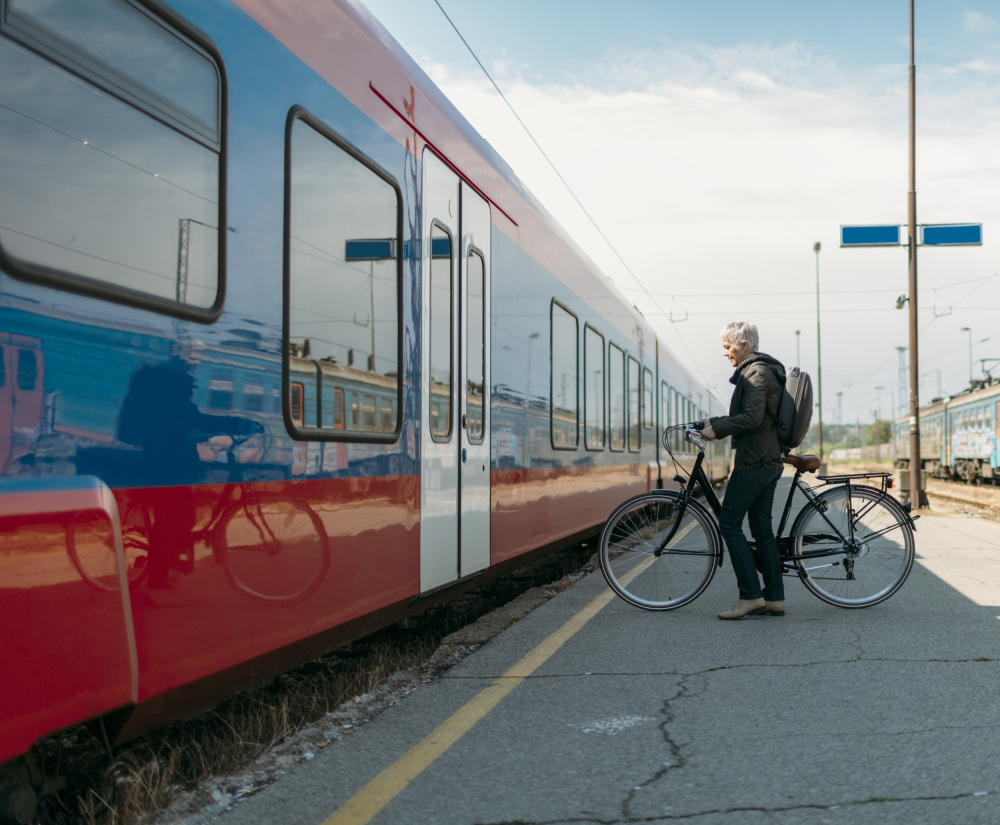Sustainable and green commuting
More and more people choose to live in suburbs while they continue to work in cities, resulting in high numbers of daily commuters. Commuter traffic is still dominated by private cars, resulting in problems such as congestion, air pollution, high demand of parking spaces and higher costs of public transport.
The urban transport system can be reshaped to an intermodal network that offers a combination of various transport modes. This helps cities to achieve a more attractive and environmentally friendly commuting system.
SUMBA has developed and tested tools (e.g. commuting master plan template) that help urban and transport planners to assess, plan, and integrate intermodal mobility solutions into transport plans and policies of their cities and municipalities.
SUMBA demonstrates how to effectively change suburban-city commuting towards more sustainable and inter-modal patterns in 10 pilot regions. Our pilot regions have analysed their situation with the benchmarking tool and the SWOT analysis, collected data and chosen suitable tools to plan or model their transport system. Based on the finding of these activities, commuting master plans and accompanying action plans have been developed in the pilot regions in a participatory way. Results of this process will be summarised in a publication and presented in the projects’ final conference.
About SUMBA+
From April 2021 SUMBA+ will continue the work started in SUMBA .The main objective of the project SUMBA+ is to support the implementation of measures planned in the commuting master plans developed in the SUMBA project. This includes three main pillars: working on specific measures laid down in the commuting master plans, further providing data-evidence from transport models and lobbying for political and financial support on local, regional and national level.
Outputs of SUMBA+ include accessibility and feasibility studies for intermodal transport hubs, the installation of a bicycle library following the example from the SUMBA main project, and studies how to integrate estimation of GHG emission reduction potential of transport measures and real-time modal split estimations into the implementation of commuting master plans.
Finally, SUMBA+ will keep promoting the SUMBA approach on the national and international level.
Pilot regions
Our innovative tools will be tested in the following regions:
- Hamburg (Germany)*;
- Tallinn city and Harju county (Estonia)*;
- Tartu (Estonia)*;
- Riga (Latvia);
- Växjö (Sweden)*;
- Šiauliai (Lithuania);
- Olsztyn (Poland);
- Associated cities Gdynia, Warsaw suburban region, Słupsk municipality (Poland), and Helsinki (Finland)
* Regions participating in both SUMBA and SUMBA+
Project overview
SUSTAINABLE URBAN MOBILITY AND COMMUTING IN BALTIC CITIES (SUMBA)
Duration: October 2017 until March 2021
Total budget: 3.1 million EUR
European Regional Development Fund: 2.5 million EUR
SUSTAINABLE URBAN MOBILITY AND COMMUTING IN PRACTICE (SUMBA+)
Duration: April 2021 until December 2021
Total budget: 833,260.30 EUR
European Regional Development Fund: 669,250.21 EUR

